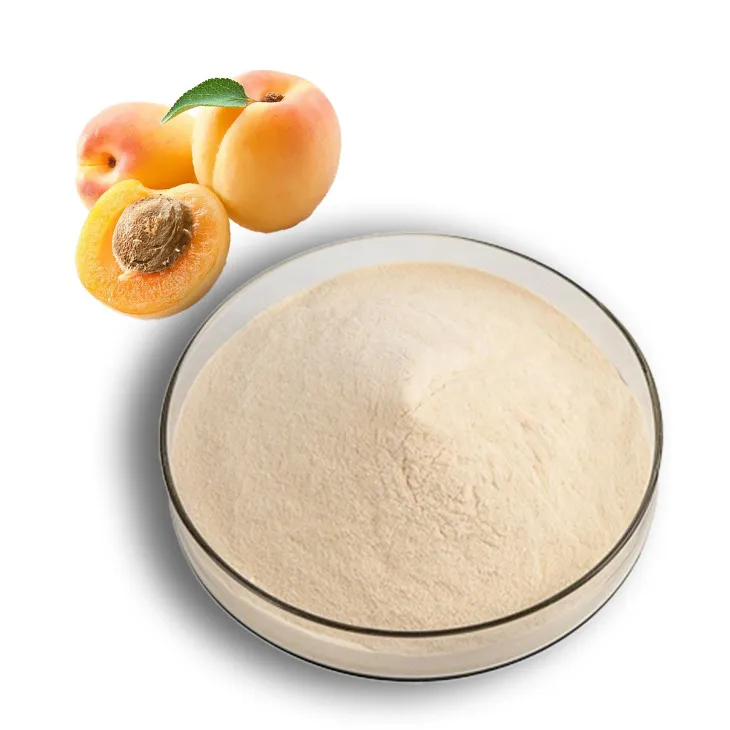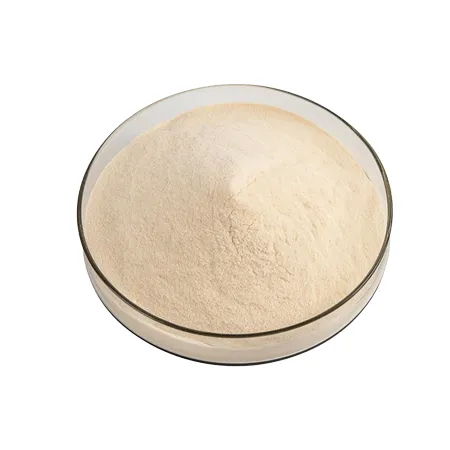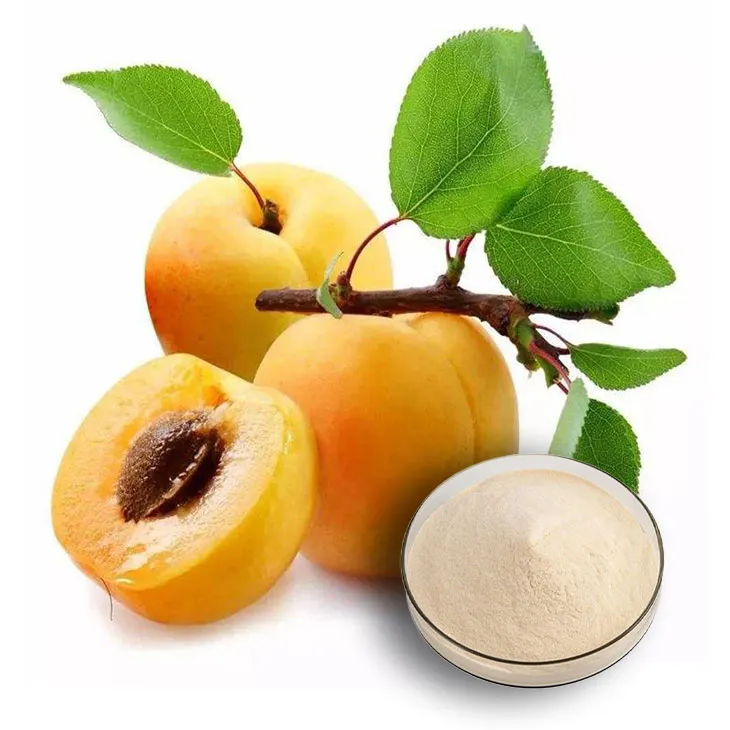- 0086-571-85302990
- sales@greenskybio.com
Expert Tips for Effective Wholesale Apricot Powder Procurement.
2024-12-11

1. Introduction
Wholesale procurement of Apricot Powder can be a complex yet rewarding process. Whether you are a food manufacturer, a retailer, or an ingredient supplier, understanding the key aspects of Apricot Powder procurement is crucial for ensuring quality, cost - effectiveness, and meeting market demands. In this article, we will explore expert tips that cover various factors from product origin to quality control and market trends.

2. Understanding Apricot Powder
Before delving into the procurement process, it is essential to have a good understanding of what apricot powder is. Apricot powder is made from dried apricots, which are ground into a fine powder. It is rich in nutrients such as vitamins A, C, and E, as well as dietary fiber and minerals. This powder can be used in a variety of applications, including food and beverage production, cosmetics, and dietary supplements.

3. Product Origin
3.1 Geographic Considerations
The origin of apricots used to make the powder can significantly impact its quality. Different regions may have different climates and soil conditions, which can affect the taste, texture, and nutrient content of the apricots. For example, apricots grown in Mediterranean climates may have a different flavor profile compared to those grown in temperate regions. When considering product origin, look for regions known for high - quality apricot production, such as California in the United States, Anatolia in Turkey, or Xinjiang in China.
3.2 Organic vs. Conventional
Another aspect of product origin to consider is whether the apricots are organic or conventionally grown. Organic apricot powder is becoming increasingly popular due to consumer demand for natural and chemical - free products. Organic apricots are grown without the use of synthetic pesticides, fertilizers, or genetically modified organisms (GMOs). However, they may be more expensive and have a lower yield compared to conventionally grown apricots. If you are targeting a market segment that values organic products, it may be worth considering organic apricot powder, but also weigh the cost implications.

4. Quality Control
4.1 Purity and Composition
Ensuring the purity of apricot powder is vital. When procuring wholesale, you should request detailed information about the composition of the powder. This includes the percentage of apricot content, any added ingredients such as preservatives or sweeteners, and the absence of contaminants. A high - quality apricot powder should have a high percentage of pure apricot and minimal additives. Look for products that are tested for purity by reliable third - party laboratories.
4.2 Microbial and Contaminant Testing
Microbial contamination can pose a serious risk to the safety and quality of apricot powder. Suppliers should conduct regular microbial testing to check for the presence of harmful bacteria, yeasts, and molds. Additionally, testing for contaminants such as heavy metals (e.g., lead, mercury) and pesticide residues is essential. Ask for the test results from the supplier and ensure that they meet the relevant safety standards, such as those set by food regulatory agencies in your country or region.
4.3 Particle Size and Texture
The particle size and texture of apricot powder can affect its usability in different applications. For example, in food production, a fine - textured powder may be more desirable for smooth - textured products like smoothies or baked goods. In cosmetics, a more uniform particle size may be required for better application. When evaluating apricot powder samples, consider the particle size distribution and texture, and ensure that they meet your specific requirements.
5. Packaging and Storage
5.1 Packaging Materials
Proper packaging is crucial for maintaining the quality of apricot powder during storage and transportation. Look for packaging materials that are airtight, moisture - proof, and light - resistant. Common packaging materials for apricot powder include laminated pouches, aluminum - foil bags, and plastic containers. Laminated pouches are often a good choice as they offer a combination of barrier properties against moisture, oxygen, and light, while also being cost - effective.
5.2 Storage Conditions
Apricot powder should be stored in a cool, dry place away from direct sunlight. Ideal storage temperatures range from 10 - 20°C (50 - 68°F). High humidity can cause the powder to clump or spoil due to moisture absorption, while exposure to sunlight can lead to nutrient degradation. Additionally, proper storage can extend the shelf life of the apricot powder, reducing the risk of product waste. Ensure that the supplier follows appropriate storage practices before shipping the product.
6. Market Trends
6.1 Growing Demand for Natural Ingredients
The market for natural ingredients has been on the rise in recent years, and apricot powder is no exception. Consumers are increasingly looking for products that are made with natural and recognizable ingredients. This trend is driven by a growing awareness of health and wellness, as well as a preference for clean - label products. As a result, the demand for high - quality apricot powder in food, beverage, and cosmetics industries is expected to continue to grow. Keep an eye on this trend when procuring apricot powder wholesale, as it can influence your product selection and marketing strategies.
6.2 Functional Food and Beverage Applications
Apricot powder is also finding new applications in the functional food and beverage market. Due to its rich nutrient content, it can be used to fortify products with vitamins, minerals, and dietary fiber. For example, apricot - flavored energy bars or antioxidant - rich smoothies are becoming popular. When procuring apricot powder, consider its potential applications in functional products and look for suppliers who can support these emerging trends.
6.3 International Market Dynamics
The international market for apricot powder is influenced by various factors such as trade policies, currency exchange rates, and consumer preferences in different countries. For example, changes in import/export regulations can affect the availability and cost of apricot powder. Additionally, cultural differences can impact the demand for apricot - based products. In some Asian countries, apricot - flavored products are highly popular, while in Western countries, there may be a growing interest in apricot powder for use in healthy snacks. Stay informed about international market dynamics to make informed procurement decisions.
7. Supplier Selection
7.1 Reputation and Experience
Choosing a reliable supplier is one of the most important aspects of wholesale apricot powder procurement. Look for suppliers with a good reputation in the industry. A supplier with a long - standing history of providing high - quality products is more likely to be trustworthy. You can check online reviews, ask for references from other customers, or visit industry trade shows to learn more about potential suppliers. Experience in apricot powder production is also a plus, as it indicates that the supplier has the knowledge and expertise to handle the product effectively.
7.2 Certification and Compliance
Ensure that the supplier has the necessary certifications and complies with relevant regulations. Certifications such as ISO 9001 (quality management) and ISO 22000 (food safety management) are indicators of a supplier's commitment to quality and safety. Additionally, if you are dealing with organic apricot powder, look for suppliers who are certified by recognized organic certification bodies. Compliance with local and international food safety standards is non - negotiable to avoid any legal issues or product recalls.
7.3 Pricing and Cost - Effectiveness
While price should not be the only factor in supplier selection, it is an important consideration. Compare the prices of different suppliers, but also take into account the quality of the product, the services offered (such as delivery options and customer support), and the overall cost - effectiveness. A supplier with a slightly higher price may offer better quality or more reliable service, which can be a better long - term investment. Request detailed price quotes from multiple suppliers and analyze them carefully to find the best value for your money.
8. Conclusion
Effective wholesale apricot powder procurement requires a comprehensive understanding of various factors, including product origin, quality control, market trends, and supplier selection. By following the expert tips outlined in this article, you can make more informed decisions when buying apricot powder in large quantities. This will not only ensure the quality and safety of the product but also help you meet market demands and stay competitive in the industry.
FAQ:
What are the key factors to consider when procuring wholesale apricot powder?
When procuring wholesale apricot powder, several key factors should be considered. Firstly, product origin is crucial as it can affect the quality and taste. Apricots from certain regions may be known for their superior flavor and nutrient content. Secondly, quality control is essential. This includes ensuring that the powder is free from contaminants, has a consistent texture, and meets the required standards for purity. Thirdly, understanding market trends can help you make a more informed decision. For example, if there is a growing demand for organic apricot powder, it may be beneficial to source such products.
How can one ensure the quality of wholesale apricot powder?
To ensure the quality of wholesale apricot powder, start by checking the supplier's reputation. A reliable supplier is more likely to provide high - quality products. Request for samples and conduct thorough inspections. Look for factors such as color, smell, and texture. The powder should have a natural color, a pleasant aroma related to apricots, and a fine, consistent texture. Also, check for certifications such as food safety certifications which indicate that the product has met certain quality and safety standards.
Why is product origin important in wholesale apricot powder procurement?
The product origin is important in wholesale apricot powder procurement because different regions may produce apricots with different characteristics. For instance, apricots grown in a particular climate may have a higher concentration of certain nutrients or a more distinct flavor. Additionally, the agricultural practices in the origin area can impact the quality of the apricots used to make the powder. Areas with strict environmental and agricultural regulations may produce apricots of higher quality, which in turn can result in better - quality apricot powder.
How do market trends influence wholesale apricot powder procurement?
Market trends can have a significant influence on wholesale apricot powder procurement. If there is a trend towards healthier eating, for example, there may be an increased demand for apricot powder that is free from additives or is organically produced. Trends can also affect the price. If apricot powder is becoming more popular in a particular market segment, such as in the beauty industry for its skin - improving properties, the price may increase. Being aware of these trends can help buyers make decisions on when to buy, how much to buy, and what type of apricot powder to source.
What are the common contaminants to look out for in wholesale apricot powder?
When procuring wholesale apricot powder, some common contaminants to look out for include pesticides, heavy metals, and microbial contaminants. Pesticide residues can be present if the apricots were not grown using proper pest control methods. Heavy metals such as lead or cadmium may be present in the soil where the apricots were grown and can accumulate in the powder. Microbial contaminants like bacteria, yeast, or mold can grow if the powder is not stored or processed properly. It is important to ensure that the supplier has proper quality control measures in place to detect and prevent these contaminants.
Related literature
- The Role of Product Origin in Food Quality"
- "Quality Control in the Wholesale Food Industry"
- "Market Trends and Their Impact on Food Procurement"
- ▶ Hesperidin
- ▶ citrus bioflavonoids
- ▶ plant extract
- ▶ lycopene
- ▶ Diosmin
- ▶ Grape seed extract
- ▶ Sea buckthorn Juice Powder
- ▶ Beetroot powder
- ▶ Hops Extract
- ▶ Artichoke Extract
- ▶ Reishi mushroom extract
- ▶ Astaxanthin
- ▶ Green Tea Extract
- ▶ Curcumin Extract
- ▶ Horse Chestnut Extract
- ▶ Other Problems
- ▶ Boswellia Serrata Extract
- ▶ Resveratrol Extract
- ▶ Marigold Extract
- ▶ Grape Leaf Extract
- ▶ blog3
- ▶ blog4
- ▶ blog5
-
White Willow Bark Extract
2024-12-11
-
Angelica sinensis extract
2024-12-11
-
Artichoke Extract
2024-12-11
-
Europen Bilberry Extract
2024-12-11
-
Epimedium extract powder
2024-12-11
-
Hedyotis Diffusa Extract
2024-12-11
-
Okra Extract
2024-12-11
-
Tongkat Ali Extract Powder
2024-12-11
-
Horse Chestnut Extract
2024-12-11
-
Reishi mushroom extract
2024-12-11





















